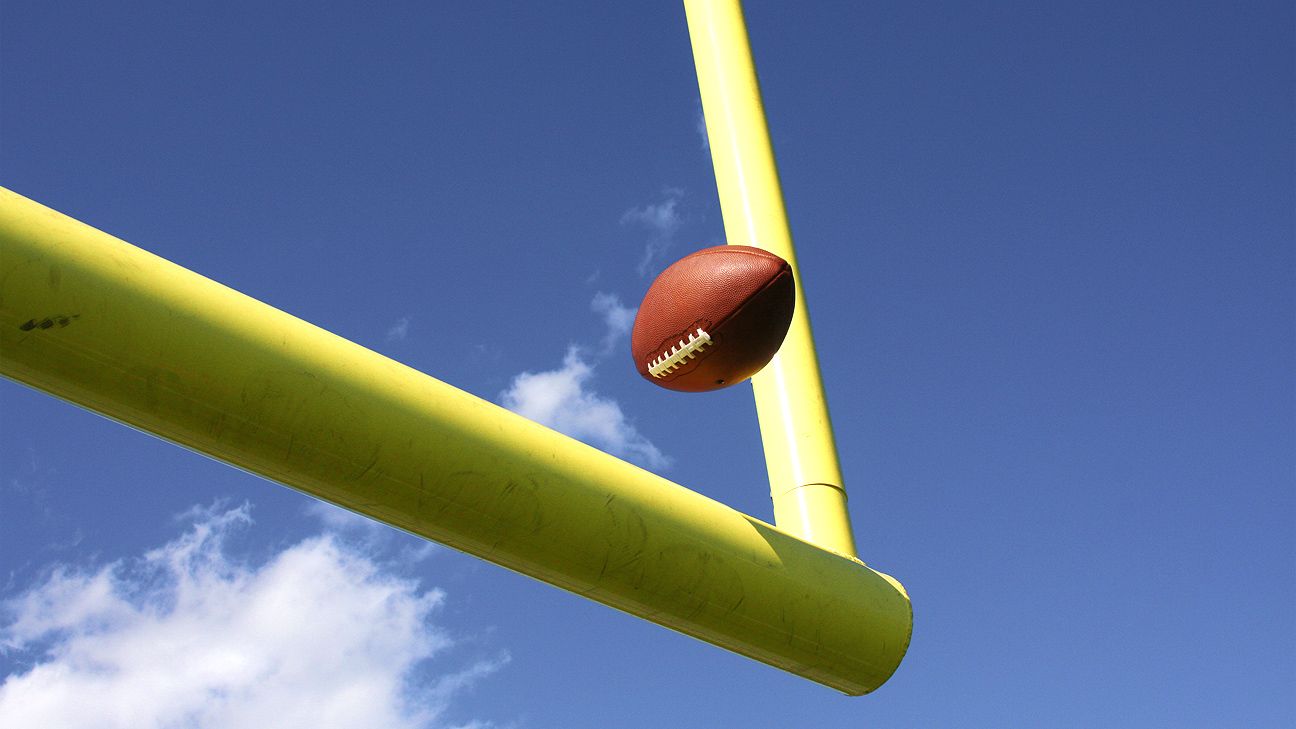The uncertainty surrounding a college football season with at least 75% fewer games has already taken a toll on the betting action at sportsbooks.
In mid-August, at MGM sportsbooks in Nevada, the total amount bet on the odds to win the national championship was estimated to be just 10% of what it normally was in the weeks leading up to the season. Odds to win the national championship and Heisman Trophy remain off the board at most sportsbooks, as the season prepares to kick off in full this week.
“There’s going to be a haircut on the handle,” Jay Rood, a veteran Las Vegas bookmaker, now with Bet.Works, told ESPN.
How much of a trim the books will receive because of the abbreviated schedule is difficult to pinpoint.
Last season, there were more than 1,500 games involving FBS or FCS teams. This year, fewer than 400 games are on a schedule that seemingly could change on a week-to-week basis due to the coronavirus pandemic.
The ACC, SEC, Big 12, American, Conference USA and Sun Belt are attempting to play revised schedules that kick off in September. The Big Ten, Pac-12, Mountain West and MAC, however, have canceled their fall football schedules, which caused sportsbooks to take the odds to win the national championship off the betting board for nearly a month.
Conservatively, more than $1 billion is bet annually on college football. A big college football game — especially early in the season when bettors’ bankrolls are at their starting point — can attract tens of millions of dollars in bets around the nation. This September, there are only 82 games scheduled compared to 466 FBS and FCS games last September.
State gaming regulators do not specify the amount wagered or revenue on college football, instead lumping betting data on both NCAA and the NFL into one “football” category. In 2019, Nevada and New Jersey, home to the two largest legal betting markets in the U.S., combined to win approximately $175 million off around $3 billion in football bets. Nevada bookmakers say the college game accounts for 45-55% of their football handle, while, in New Jersey, operators say the NFL attracts about twice as much money as college football at the state’s largest sportsbooks.
A study by HPL Digital Sport found that 44% of college football bettors wagered between $100 and $500 a week. Even with an abbreviated schedule, recreational bettors may simply spread their normal amount bet across the games available, while others may shift more of their action to the NFL. But some diehard college football fans may just choose not to bet, if their favorite team or conference is not in action.
At the sportsbook at Ameristar Casino Hotel in Council Bluffs, Iowa, which is located a short drive from Omaha, Nebraska, it’s not unusual for 10% of all money bet on college football on a given Saturday to be on Cornhuskers games.
“It’s a religion for them, so they’re kind of betting with their hearts, not always with their minds,” Paul Czak, vice president and general manager at Ameristar Casino Hotel, said. “And Nebraska wasn’t all that great last year, so it worked out for us.”
Research firm Eilers and Krejcik Gaming estimates that, in a normal year, college football accounts for roughly 12% of annual revenue for sportsbooks serving U.S. customers.
“I don’t think it’s controversial to suggest that there are some bettors who are betting largely out of affinity for a particular team or a particular support, and in the absence of that object of affinity will bet less or not at all,” said Chris Grove, a gambling industry analyst who oversees Eilers & Krejcik Gaming’s sports betting practice.
Jeff Whitelaw, a respected Las Vegas sports bettor, said he likely will bet slightly less on college football this season for multiple reasons. With fewer games, especially ones involving teams from smaller conferences, Whitelaw believes lines will be sharper and have less movement. He estimates 25-30% of his bets in a season target games from smaller conferences.
“I think my volume will go down a little bit, but, again, because there’s so many fewer games to look at, then you have more time to look at other things,” Whitelaw said. “I’ll have more time to look at NFL numbers than before. I may do more betting on Sunday than Saturday.”
The first games involving FBS teams kick off this week, but the odds to win the national championship remain off the board at most U.S. sportsbooks. The SuperBook at Westgate Las Vegas was poised to repost national-title odds last week, before pausing when reports surfaced of the Big Ten rethinking its plans for the fall.
“It’s August 29 and we don’t know if Ohio State will be in the field or not,” John Murray, executive director for the SuperBook, told ESPN in a text message. “It’s just ridiculous.”
The SuperBook on Monday did reopen betting on the odds to win the national championship. Ohio State, considered the second-favorite behind Clemson in July, is no longer offered, along with the rest of the Big Ten and Pac-12 teams.
